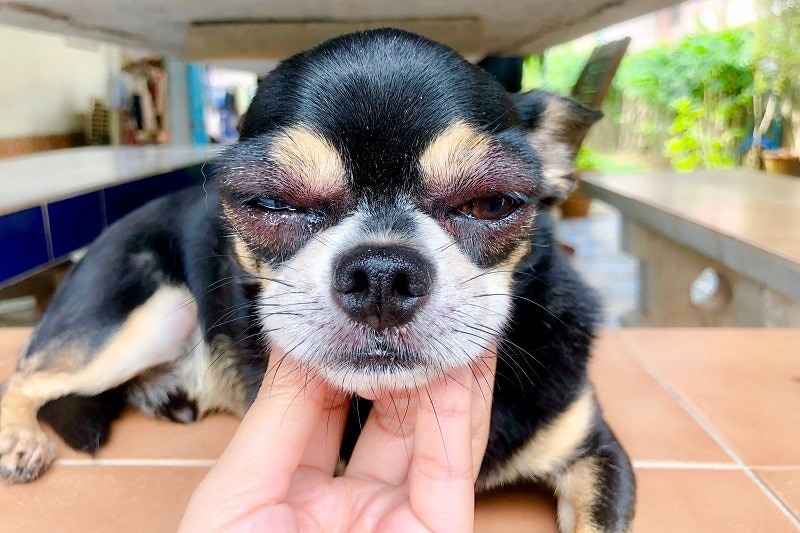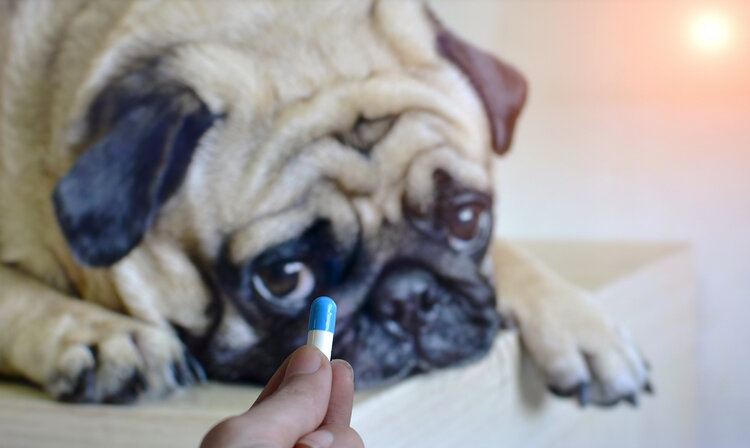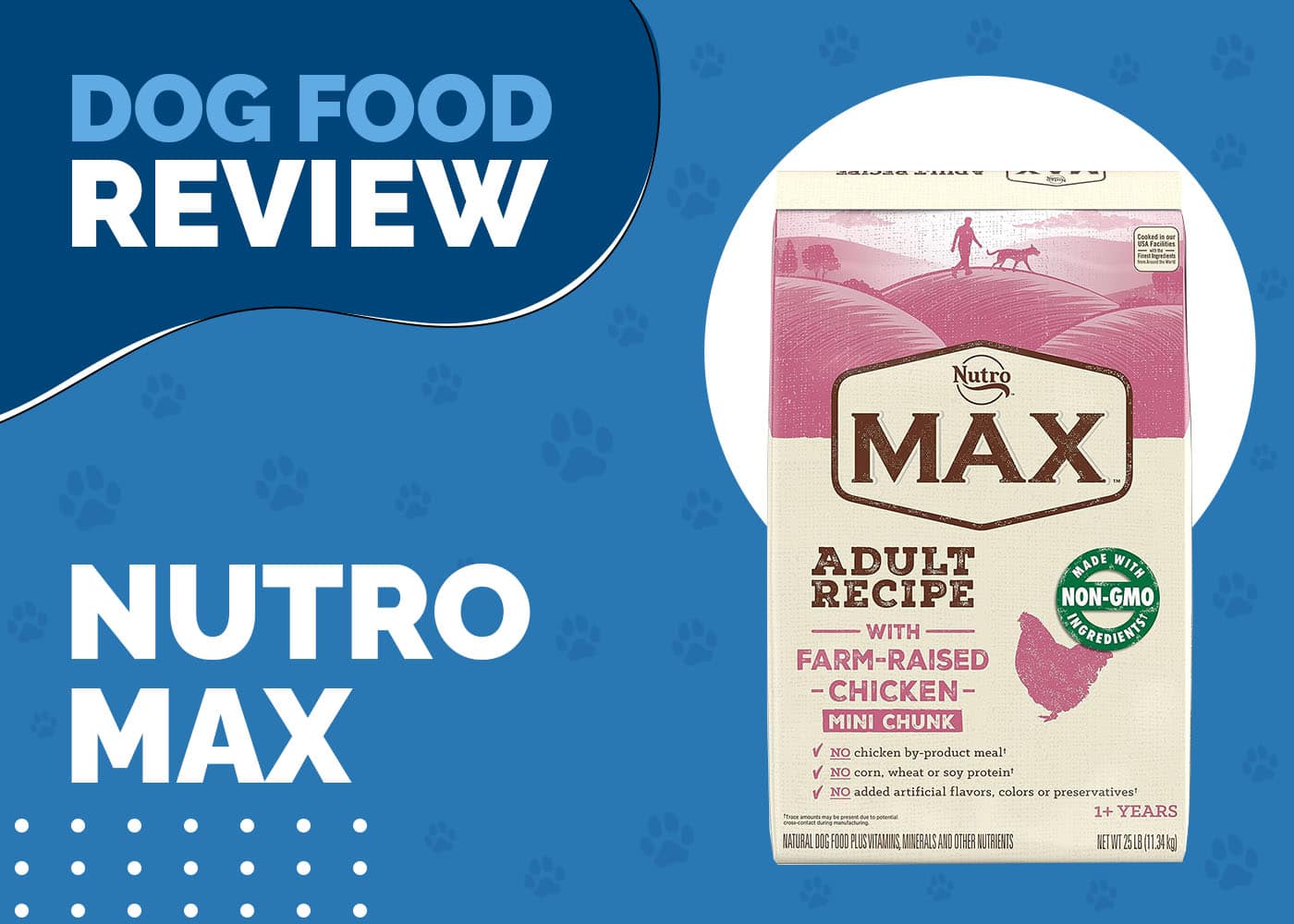Dog’s Face Swollen? Our Vet Explains What to Do

Updated on

Pets are unwell from time to time and if your dog’s face has swollen suddenly this could mean a lot of different things. If your dog’s face is swollen it is important to contact your veterinary clinic for advice. Your veterinarian will want to examine your pet and possibly perform investigations to provide your pet with the appropriate treatment.
If your dog’s face is swollen it doesn’t necessarily mean something terrible is going on—but it’s important to get them checked out to rule out some painful conditions that may need treatment. Providing your veterinarian with all the information about your pet’s condition will enable them to apply the most effective treatment plan for your pet.
If your dog’s face is swollen, immediately contact your veterinarian. Don’t try to medicate or treat this at home unless your vet instructs you to do so. Be prepared to transport your dog to a veterinary clinic.
Why is My Dog’s Face Swollen? Top 9 Reasons
There are a variety of potential causes for your dog’s facial swelling. Your vet will need to examine your pet and possibly perform diagnostic tests to investigate the cause. Here are some of the most common reasons:
1. Insect Stings
Insect stings such as bee and wasp stings may cause generalized facial swelling in your dog. Bee or wasp stings usually occur around the nose or muzzle, as this is where an incautious puppy might try to eat a bee. Allergic reactions to insect bites can be serious if the swelling is severe, as the swelling can obstruct your pet’s airways.
Contact your vet immediately if your pet has a swollen face and is struggling to breathe—this is an emergency.
2. Allergic Reactions
As with insect stings, dogs can also develop allergic reactions to many different things such as food ingredients, drugs, or vaccinations. If your dog’s face is swollen with hives, then this may indicate an allergic reaction. Hives are the body’s way of responding to an allergic reaction and this results in lots of raised swellings all over your pet’s body.
It’s rare for a vaccination to cause an allergic reaction, but if you think that your dog is suffering an allergic reaction after a vaccine, contact your vet for advice. It may be necessary to administer antihistamines to your pet for a couple of days before their next vaccination—your vet will be able to advise on this. Vaccinations are very safe and allergic reactions to vaccines are extremely uncommon.
- Check out our favorite homemade dog food recipes for dogs with skin allergies.
3. Trauma
If your dog sustains facial trauma, such as a result of a car accident or fall, then this may lead to facial swelling. Head trauma is a serious injury that needs assessment from a veterinarian immediately. If your vet suspects your dog has sustained a facial fracture, then they may need imaging such as a CT scan and surgery to repair this.
4. Wounds or Dog Bites
If your dog receives a bite from another animal and treatment is not provided promptly, an infection (otherwise known as an abscess) may develop beneath the skin. Abscesses can be very painful for your dog and in some circumstances, the abscess may burst before veterinary treatment is sought. Dog bites are usually treated with a course of antibiotics and anti-inflammatories.
In some circumstances, it is necessary to surgically treat bites and wounds.
5. Tooth Abscess
Like humans, dogs can also suffer from dental abscesses. Swelling under the eye is a common sign of a tooth abscess in a dog. Dogs that have tooth abscesses may be uncomfortable, have difficulty eating, or be lethargic. Tooth root abscesses are extremely painful and should be treated as soon as possible by a vet. Whilst antibiotics will help the swelling go down, it’s likely to recur unless the tooth is removed.
Your vet will X-ray your dog’s teeth to identify and remove the offending tooth under general anesthetic.
6. Stick Injury
Do not throw sticks for your dog as it can harm your best friend. Flying sticks can sometimes be caught awkwardly by your dog and cause severe damage. Sticks can penetrate the soft tissues in the back of their mouth and damage vital structures such as the food pipe, windpipe, and major blood vessels. Stick injuries can be life-threatening.
Occasionally, splinters of wood lodge themselves beneath the gums or at the back of the mouth and cause the formation of abscesses. If you think your dog has been injured by a stick, contact your veterinarian for advice urgently.
7. Skin Infection
Dogs can develop skin infections all over their body and occasionally this can happen on their face. Puppies and adolescent dogs occasionally suffer from skin infections under the chin. Do not be tempted to treat the condition yourself, contact your veterinarian for advice as there are many causes of skin disease in pets and each condition requires different treatment.
8. Tumors and Cancer
Although relatively rare, there are some types of cancer that can cause face swelling in dogs. Tumors of the nose and bones of the skull may change the shape of the bone, creating a hard swelling. Additionally, lymphoma is one of the most common cancers in dogs, and it causes swelling of the lymph nodes.
Since these nodes are under the chin and in the throat, these dogs often look as though they have facial swelling.
9. Puppy Strangles
A strange condition known as puppy strangles or juvenile cellulitis can happen in young dogs, causing severe and sudden swelling of your puppy’s face. You will also usually see raised bumps or pus-filled lumps over your dog’s face and muzzle, lethargy, swelling of the lymph nodes under the chin, and scabs over your dog’s skin.
It can quickly resolve with the correct treatment.
How Long Will It Take for My Dog’s Face Swelling to Go Down?
The length of time it takes for your dog’s face swelling to go down depends on the cause of the swelling, how long the swelling has been present, and the type of treatment given. Your veterinarian will be able to advise you on the cause of your dog’s swelling and what treatment is necessary, as well as inform you of how long they expect it will take for your dog’s face swelling to resolve. They will also provide advice on what to do if your dog’s condition is not improving as expected.
If facial swellings appear quickly, then the swelling will often also improve quickly after treatment is started. However, if a facial swelling has been present for some time then it should be expected to take a while longer to resolve. Swellings of the soft tissues, such as after a wasp sting or a wound often return to normal within a day or two after treatment has started. Swellings involving bone will take a lot longer and may never fully resolve.
What Do You Do When Your Dog’s Face Is Swollen?
Contact your veterinary clinic
As there are a variety of causes for your dog’s facial swelling, it is important to contact your veterinarian at the earliest opportunity to discuss your pet. They might advise you of treatment you can give at home, or they might recommend you come in for a visit. Some facial swellings progressively worsen and if this swelling becomes severe enough to affect your pet’s breathing, this becomes an emergency. Be ready to transport your pet to the veterinarian if necessary.
What Can I Give My Dog for a Swollen Face?
Do not give your dog any medication before you have spoken to your veterinarian. A home remedy for face swelling may not only be inappropriate but could also cause harm. Many human medications are not suitable for pets and in some cases can be harmful or toxic to them. Some vets prescribe antihistamines, such as Benadryl, to dogs. However, Benadryl is not automatically suitable, and it’s best to discuss your dog’s symptoms with your vet so they can recommend the best treatment for your dog.
It is not recommended to give your dog human medications without speaking to your vet first.

Why Can’t I Use Benadryl?
The dose of Benadryl in dogs is not the same as in humans. Your pet may also be on other medications or suffer from conditions that prevent the safe use of Benadryl. Like many antihistamines, Benadryl is not licensed for use in dogs as it has not been rigorously tested for use in pets. Lastly, it may be completely inappropriate if you’ve misinterpreted your dog’s condition. Therefore, contact your veterinarian for advice- they will be in the best position to decide what is safe to give to your pet.
Conclusion
There is a multitude of potential causes for your dog’s swelling. Contact your veterinarian should your dog develop a facial swelling as this may indicate a serious condition that requires treatment. Your vet will be able to assess your pet to determine the cause of their swollen face and discuss options for their treatment.
It is not recommended to treat your pet at home as many human medications are not safe for use in dogs and may actually be harmful.
Featured Image Credit: Oriohori, Shutterstock













